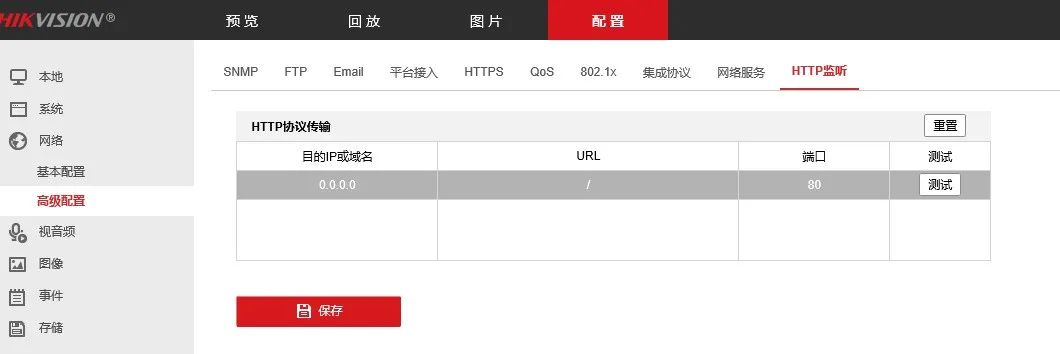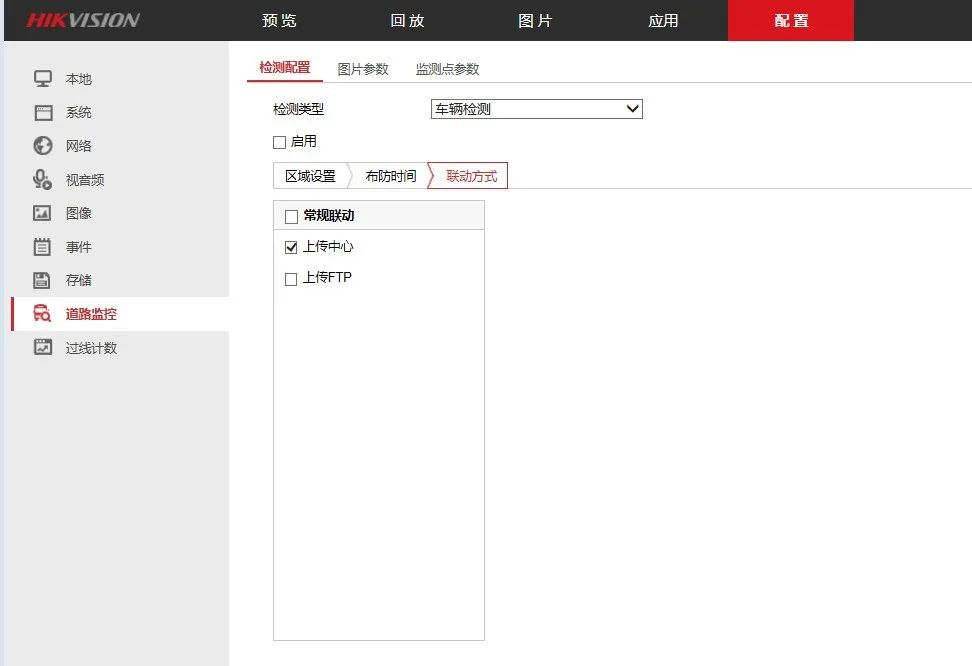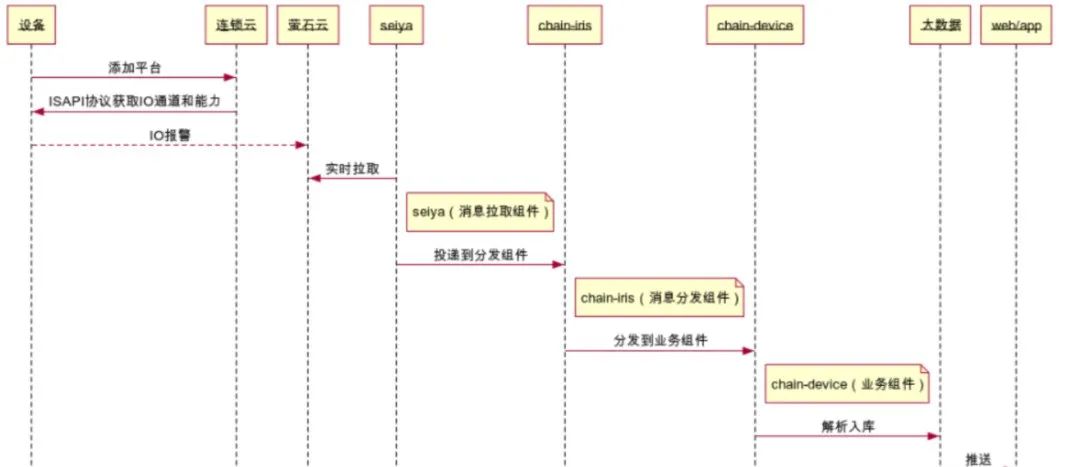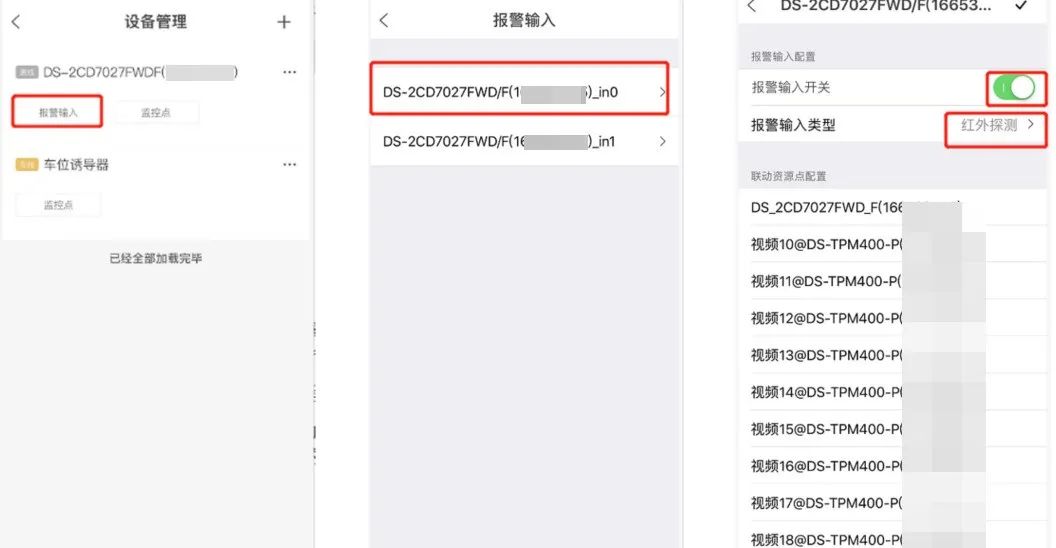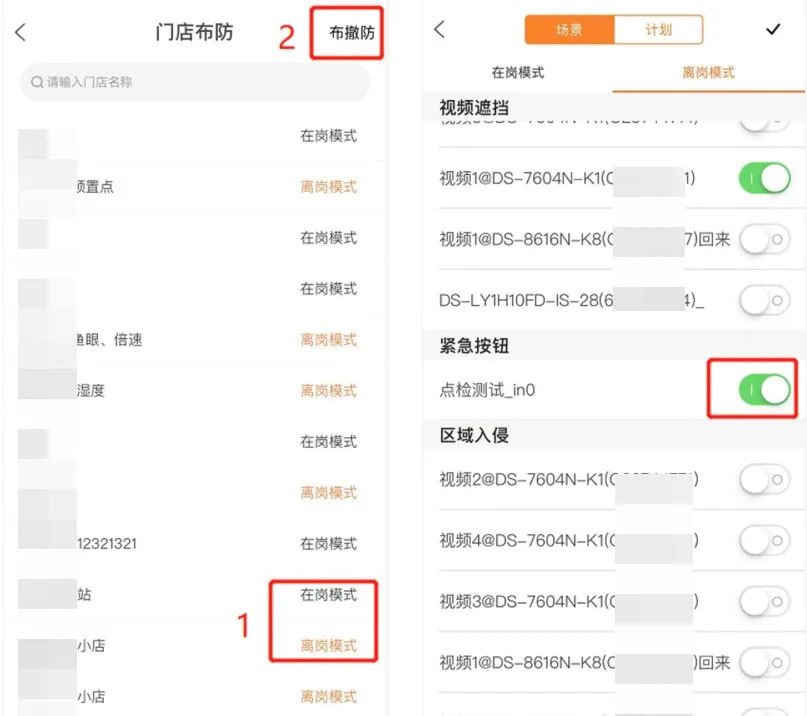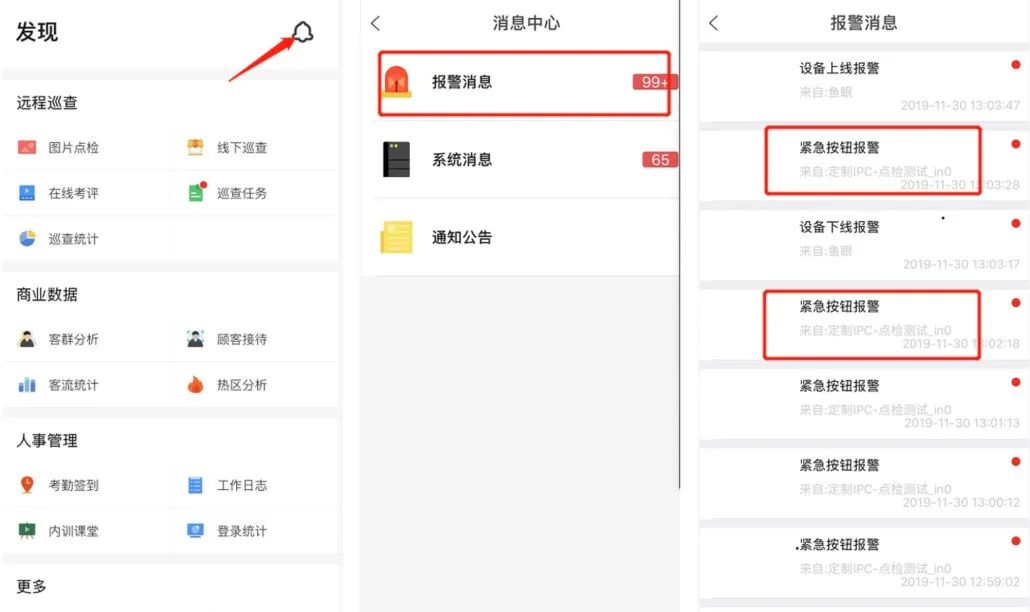
|
The device sends alarm information to the destination IP or domain name via the HTTP protocol, requiring the destination IP or domain name to support HTTP protocol for receiving alarm information. Supports HTTP protocol alarm uploads for events such as face capture, mixed target detection, road monitoring, smart city management, smart events, queue detection, hard disk full, hard disk error, illegal access, etc. It supports HTTP protocol subscription for defense but does not support HTTP protocol alarm uploads for events like network disconnection or IP address conflict. HTTP alarms do not support resuming transmission after network disconnection. Configuration Method: Access the camera via the web, go to Configuration – Network – Advanced Configuration – HTTP Listening, and configure the corresponding destination IP or domain name.
In the corresponding alarm event linkage method, check the option to upload to the center.
|
| Cloud Eye Chain IO Alarm Configuration and Troubleshooting Instructions
Business Process: 1. The device registers and sends alarm messages to the Cloud.
2. The platform receives and processes the alarm message: after receiving the alarm message, the platform parses the message and pushes it to the app and web end. For specific operational guidance, click to view:(All operations related to device IO alarms are done in the app) Enter App – Discover – Device Management Click on Alarm Input – Select IO Channel – Turn on the alarm switch and select the alarm type
Enter App – Discover – Store Defense Configure the store in/on duty mode – Enable the store’s devices for defense/withdrawal (to keep the defense zone in working status)
Collapse
|

